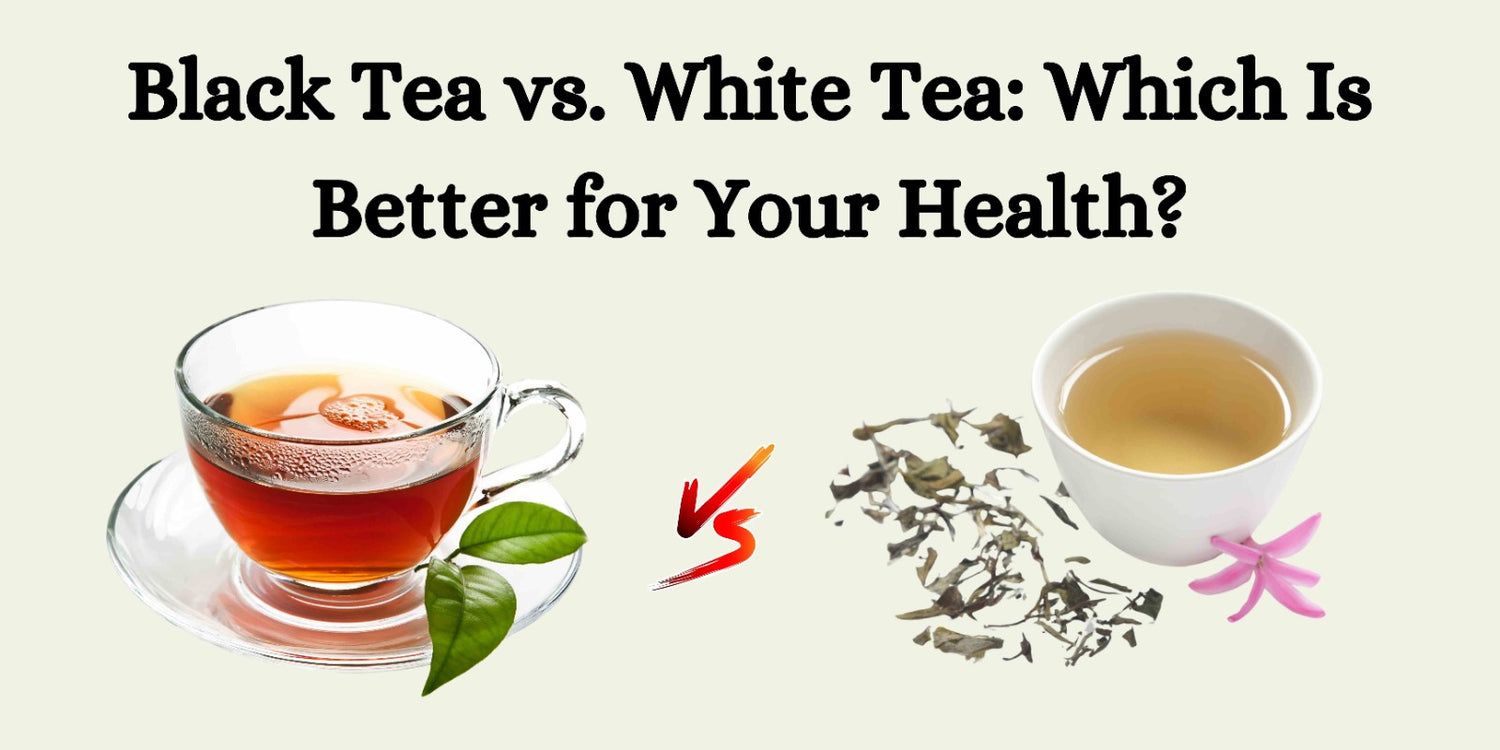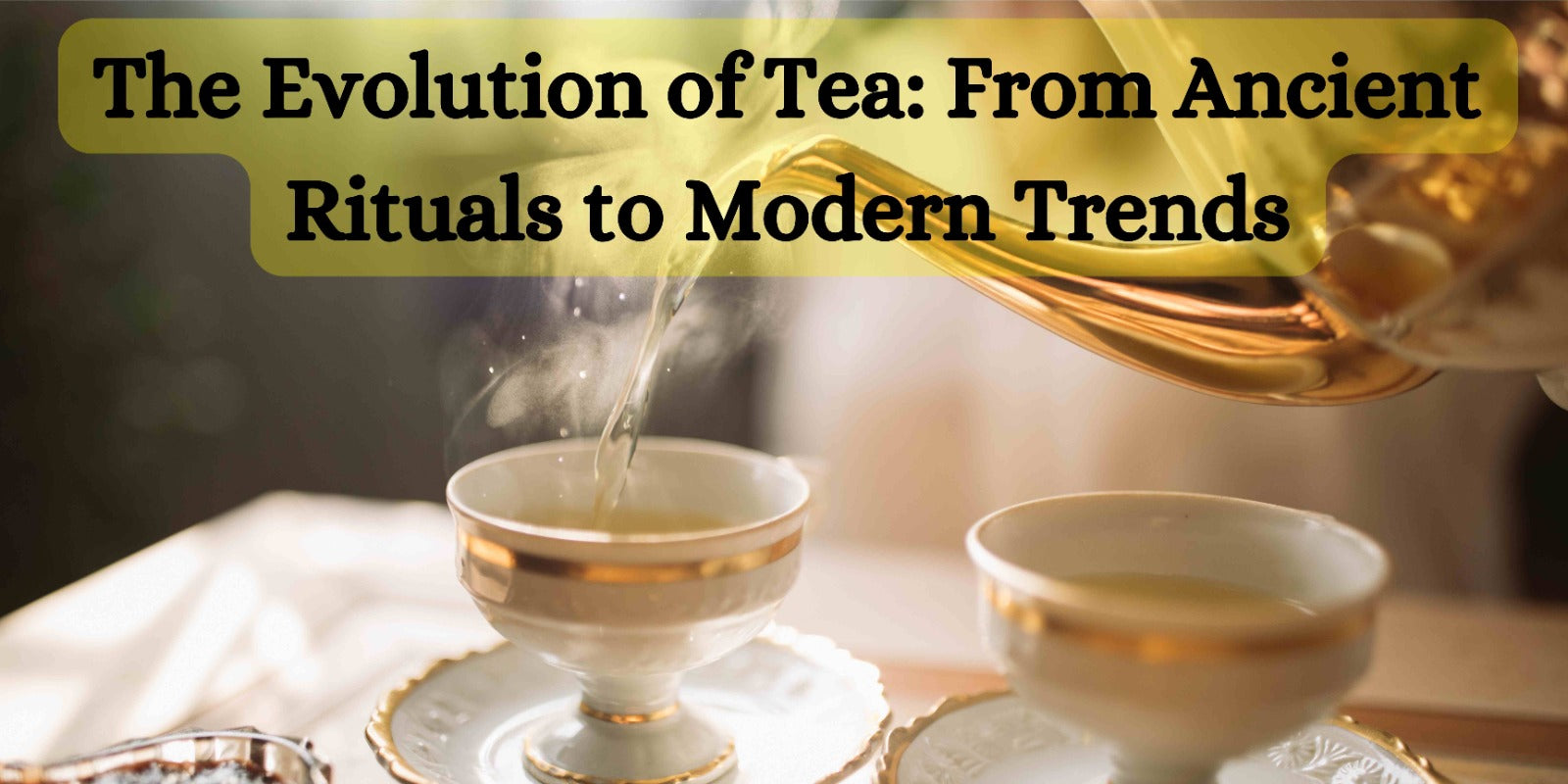In the realm of teas, two varieties often spark considerable debate among aficionados and health enthusiasts alike: black tea and white tea. Each boasts a unique character, taste, and plethora of health benefits that can contribute significantly to a healthy lifestyle. But when pitted against each other, which tea emerges as the superior option? This comprehensive article delves into the nuances of both black and white teas, comparing their health benefits, antioxidant levels, caffeine content, and much more to help you decide which tea reigns supreme in the health battle.
Introduction to Black Tea and White Tea
Tea, in its many forms, has been a staple in diets around the world for centuries, revered not just for its comforting warmth and diverse flavors but also for its health-promoting properties. Among the vast spectrum of teas, black and white varieties sit at opposite ends in terms of processing, flavor, and color. Black tea undergoes a full oxidation process, which imparts a bold, robust flavor and a dark hue to the leaves. In contrast, white tea is the least processed of all teas, characterized by its delicate flavors and light color, as it is made from the young leaves and buds of the Camellia sinensis plant.
Understanding these teas' origins and production processes is crucial as they directly influence the health benefits, antioxidant content, and overall nutritional profile of the teas. The journey from leaf to cup is marked by meticulous steps that preserve the natural essence and healthful components of the leaves, albeit in varying degrees for black and white teas. This variance lays the foundation for a fascinating comparison of their respective health benefits and nutritional offerings.
Differences Between Black Tea and White Tea
The primary difference between black and white tea lies in their processing. Black tea is fully oxidized, which contributes to its dark color and rich flavor. This oxidation process also transforms the chemical composition of the leaves, affecting the types and quantities of antioxidants found in the finished product. White tea, on the other hand, undergoes minimal processing, which preserves its pale color and subtle flavor. This gentle treatment helps in retaining higher levels of antioxidants and compounds beneficial to health.
Another key difference is the harvesting time. White tea is harvested from young tea buds covered in fine white hairs, giving it its name, while black tea is made from mature leaves exposed to the sun, facilitating oxidation.
These differences in processing and harvesting not only influence the taste and aroma of the tea but also impact their nutritional profiles, making each tea unique in its health-promoting potential.
Health Benefits of Black Tea
Black tea is not just a stimulating beverage but also a potent source of health benefits. Its high level of antioxidants, including theaflavins and thearubigins, contributes to its reputed ability to combat oxidative stress and reduce inflammation in the body. Regular consumption of black tea has been linked to a lower risk of chronic diseases such as heart disease, diabetes, and certain types of cancer.
The cardiovascular benefits of black tea are particularly noteworthy. Studies suggest that the flavonoids present in black tea can improve endothelial function, thereby aiding in the maintenance of healthy blood vessels. This effect is crucial for preventing heart disease and stroke. Additionally, black tea has been shown to aid in reducing bad cholesterol levels while enhancing good cholesterol, further bolstering heart health.
Beyond heart health, black tea may also play a role in weight management. Its caffeine content, alongside other active compounds, has been associated with increased metabolism and fat oxidation, making it a supportive beverage for those looking to manage their weight or enhance their physical performance.
Health Benefits of White Tea
White tea is often celebrated for its high antioxidant content, which surpasses even that of green tea. These antioxidants, including catechins and polyphenols, are instrumental in neutralizing harmful free radicals and reducing oxidative stress, a key factor in the aging process and the development of many chronic diseases.
One of the most compelling aspects of white tea is its potential for cancer prevention. Research indicates that the high levels of flavonoids in white tea may inhibit the growth of various cancer cells, promoting cellular health and reducing the risk of cancer development. Furthermore, the minimal processing of white tea preserves its natural antioxidants, making it an exceptionally healthful choice.
In addition to its anticancer properties, white tea has been associated with numerous other health benefits. It has been shown to improve oral health by combating bacteria and viruses, thereby reducing the risk of dental caries and infections. Moreover, its anti-inflammatory properties can help soothe the skin and reduce the risk of chronic inflammatory diseases.
Antioxidants in Black Tea and White Tea
Antioxidants are essential compounds that safeguard our cells from harm by neutralizing free radicals. Both black and white teas are rich sources of antioxidants, though their profiles differ due to the distinct processing methods they undergo. Black tea is abundant in theaflavins and thearubigins, two types of antioxidants that emerge during the oxidation process and are known for their anti-inflammatory and anticancer properties.
White tea, with its minimal processing, retains a higher concentration of catechins, a type of antioxidant found in fresh tea leaves. Catechins are particularly effective in combating oxidative stress and have been extensively studied for their potential to reduce the risk of chronic illnesses such as heart disease and cancer.
Comparing the antioxidant content of black and white teas, it's evident that both offer substantial health benefits. However, the higher catechin content in white tea may provide it with a slight edge in terms of antioxidant power. Nonetheless, the unique antioxidants found in black tea also contribute to its health-promoting properties, making both teas excellent choices for those looking to enhance their antioxidant intake.
Caffeine Content in Black Tea and White Tea
Caffeine is a natural stimulant found in various teas, coffee, and chocolate. It's well-known for its ability to enhance alertness and improve concentration. When it comes to tea, the caffeine content can vary widely depending on the type, processing, and brewing time. Generally, black tea contains a higher amount of caffeine compared to white tea. This is largely due to the longer oxidation process and mature leaves used in producing black tea, which leads to a greater concentration of caffeine.
For those sensitive to caffeine or looking to reduce their caffeine intake, white tea offers a gentler alternative. Its lower caffeine content still provides a mild stimulating effect without the jitters or sleep disturbances that can accompany higher-caffeine beverages. This makes white tea an ideal choice for evening consumption or for those who prefer a less stimulating drink.
It's important to note that the precise caffeine content of any tea can vary significantly based on factors such as the specific variety of tea, the growing conditions, and the brewing method. Therefore, while generalizations about caffeine content can be made, individual experiences may vary.
Taste and Flavor Profiles of Black Tea and White Tea
The taste and flavor of tea are profoundly influenced by its processing, and this is vividly exemplified in the contrasting profiles of black and white tea. Black tea is renowned for its bold, robust flavor, often described as rich, malty, or even smoky, depending on the variety. This full-bodied flavor profile is a direct result of the oxidation process, which intensifies the tea's natural flavors and aroma.
White tea, in contrast, is celebrated for its subtle, delicate flavor. It often possesses a sweet, lightly floral taste, reflective of its minimal processing and the use of young tea leaves and buds. White tea's flavor is nuanced and can include notes of fruits, nuts, and honey, which are appreciated by those with a discerning palate.
The distinct taste profiles of black and white tea cater to different preferences and occasions. While black tea might be preferred for a hearty morning brew or an afternoon pick-me-up, white tea is often sought after for its gentle, soothing qualities ideal for relaxation or a peaceful evening.
Brewing the Perfect Cup of Black Tea
Brewing the perfect cup of black tea is an art that can enhance its flavor and health benefits. The key to a great cup of black tea lies in the quality of the water, the temperature, and the brewing time. Begin with fresh, cold water and bring it to a vigorous boil. For black tea, using water at a higher temperature is crucial to extract the full range of flavors and aromas.
Once the water reaches a boil, pour it over the tea leaves or tea bag in your cup or teapot. The general recommendation is to use one teaspoon of loose tea or one tea bag per cup of water. Let the tea steep for 3 to 5 minutes, adjusting the time to match your preferred strength. A longer steeping time will result in a stronger, more robust flavor, but be cautious not to over-steep as this can lead to bitterness.
Once the desired steeping time has passed, simply remove the tea leaves or tea bag. You can enjoy your black tea plain or enhance it with milk, sugar, honey, or lemon, according to your preference. The perfect cup of black tea is not only a delightful beverage but also a source of warmth and comfort any time of the day.
Brewing the Perfect Cup of White Tea
Brewing white tea demands a delicate touch to maintain its subtle flavors. The ideal water temperature for white tea is lower than that for black tea, to avoid scalding the leaves and releasing bitter compounds. Heat water until it is just about to reach a boil, between 160°F to 185°F (71°C to 85°C), and then gently pour it over the white tea leaves.
Use approximately one teaspoon of loose white tea or one tea bag for every cup (8 ounces) of water. Due to its delicate nature, white tea should steep for a shorter period than black tea, typically between 4 to 5 minutes. This allows the subtle flavors and aromas to be released without becoming overshadowed by bitterness.
Once steeped to your liking, carefully remove the tea leaves or tea bag. White tea is best enjoyed in its pure form, without any additives, to truly appreciate its nuanced flavor profile. A perfectly brewed cup of white tea offers a serene tea-drinking experience, inviting you to savor every sip.
Black Tea vs. White Tea: Which One is Better for Weight Loss?
The role of tea in weight loss has been the subject of numerous studies, with both black and white teas showing potential benefits. Black tea's metabolism-boosting properties, attributed to its caffeine content and active compounds like theaflavins, can aid in weight management. It has been suggested that regular consumption of black tea may help in reducing body fat and promoting weight loss when coupled with a healthy diet and exercise.
White tea, on the other hand, has been found to possess properties that can break down fat cells and prevent the formation of new ones, thanks to its high antioxidant content. This makes white tea a promising addition to a weight loss regimen, potentially aiding in the reduction of body fat.
When comparing the two, both black and white teas offer benefits that can support weight loss efforts. The choice between them may come down to personal preference in taste, caffeine tolerance, and how each type of tea fits into your overall diet and lifestyle.
Black Tea vs. White Tea: Which One is Better for Heart Health?
Tea consumption has been linked to various heart health benefits, including reduced risk of heart disease and stroke. Black tea's rich flavonoid content can improve endothelial function, lower blood pressure, and reduce cholesterol levels, all of which are important factors in heart health. These benefits suggest that black tea may be a valuable beverage for those concerned with cardiovascular health.
Similarly, white tea's potent antioxidants can protect the heart by reducing inflammation, preventing the oxidation of LDL cholesterol, and improving overall heart function. Its effects on blood pressure and cholesterol further underscore its potential for supporting cardiovascular health.
Both black and white teas have their merits when it comes to heart health, and incorporating either into your diet can contribute positively to cardiovascular wellness. The decision between black and white tea for heart health may ultimately depend on individual health goals, caffeine sensitivity, and personal taste preferences.
Black Tea vs. White Tea: Which One is Better for Skin Health?
The skin benefits of tea are often overlooked in the discussion of its health properties. Both black and white teas contain antioxidants that are beneficial for skin health. Black tea, with its anti-inflammatory and antioxidant properties, can help in reducing the signs of aging and protecting the skin against UV radiation damage. Its potential to improve skin health and appearance makes it a worthy addition to a skin care regimen.
White tea is particularly rich in antioxidants that can protect the skin from oxidative stress and reduce the risk of premature aging. Its anti-inflammatory properties also make it beneficial for reducing redness and inflammation, promoting a healthy, glowing complexion.
When it comes to improving skin health, both black and white teas offer valuable benefits. The choice may depend on personal preferences and specific skin concerns, as both types of tea can play a role in maintaining healthy, youthful-looking skin.
Conclusion: Choosing the Right Tea for You
The debate between black tea and white tea is one that encompasses taste preferences, health benefits, and individual lifestyle choices. Both teas offer a range of health benefits, from antioxidant properties to potential roles in weight loss, heart health, and skincare. The choice between black and white tea ultimately depends on your personal health goals, caffeine sensitivity, and flavor preferences.
Whether you lean towards the robust, full-flavored profile of black tea or the delicate, subtle nuances of white tea, incorporating either into your daily routine can contribute positively to your overall well-being. Remember, the best tea for you is the one that you enjoy drinking and that complements your lifestyle and health objectives. So, why not brew a cup of your preferred tea today and toast to your health?




